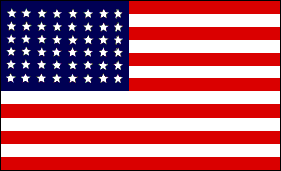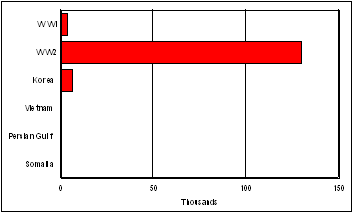World WarII
In My Grandpas Shoes By dakota smith This website is in honor of my great grandpa William W. Alexander

1994 the 50th Anniversary of the landing at Normandy, he revisited the place he became a man. Going back somewhere, where you fought and came so close to death where you fronted your fear and you showed your bravery. But that’s only how we see it. It’s where you thanked God for your life and thought that death could be upon you at any time but for what. To make a name for self to be a war hero to be remember as a grave no. Only to serve for your country to make a livening to show for your name. To make peace between people who are all the same down to a human factor. Put the color, the arguments, the bombs, the weapons all aside now look at us….. We all have souls we all have family we all have a country we all have something to fight for, we all have brains but the true question is do we use it to our full capability. We all fight for the same reasons for our pride. But every man's way of war is different. My grandpa’s way of war was peace to overcome fear; I do not think he was expecting what he ended up with but what came to him would change his life for the years to come. Giving him a total different outlook of life and coming within days of death where he knew if it was meant to be it would happen. War changes and shapes man and now women into what they are today. It's not the killing nor the winning of the war but the war itself; the part where your life is in the hands of the man next to you. People think history is boring and point less but even my great grandpa said history is what got him into the war and got him to fight for his country.

William W. Alexander is my great grandpas name but in World War II he was an infantry soldier. His job was not like most other soldiers. "He was part of the 109th infantry he was private first class and regiment he was in the Intelligence and Reconnaissance section part of the 2nd battalion". His conditions of war were not the same as others and he knew more than 80% more info of America and our army. "He spent days at a time in medieval German castle that loomed over Vianden, a little medieval town nestled against the west bank of Our river"."As my great grandpa said from the castle, we could look across the Our river on the side of the hill where there is a sanatorium, which turned out to be the Germans observations post". 'They watching us and we were watching them watch us." Usually there were two men in the castle 24 hours and then they were relieved the following day." “Most ops had phones or radios but not him he had to communicate through a small detachment that was staying in Hotel Heintz near Vianden.” this just shows for the hard work and the great character this man shows upon us.
The war begins

After the breakout from Normandy at the end of July 1944, and following the landings in southern France on 15 August 1944, the Allies advanced towards Germany more quickly than anticipated. The rapid advance, coupled with an initial lack of deep water ports, presented the Allies with enormous supply problems. Over-the-beach supply operations using the Normandy landing areas and direct landing LSTs on the beaches exceeded planning expectations, but the only deep water port in Allied hands was at Cherbourg, near the original invasion beaches. Although the port of Antwerp, in Belgium, was captured fully intact in the first days of September, it was not made operational before 28 November, when the estuary of the River Scheldt, which gives access to the port, had been cleared from German control. The delay was caused by failure of the sector's senior commanders Dwight D. Eisenhower and Bernard Montgomery to recognize the need to clear the estuary, amidst the wrangle over whether Montgomery or American General George S. Patton in the south, would get priority. Further complications arose over the priority given to Operation Market Garden, which had mobilized the resources needed for expelling the German forces from the riverbanks of the Scheldt. German forces remained in control of several major ports on the English Channel coast until May 1945; those ports that did fall to the Allies in 1944 were sabotaged to deny their immediate use by the Allies. The extensive destruction of the French railway system prior to D-Day, intended to deny movement to the Germans, proved equally damaging to the Allies as it took time to repair the system of tracks and bridges. A trucking system known as the "Red Ball Express" was instituted to bring supplies to front line troops; however, it took five times as much fuel to reach the front line near the Belgian border as was delivered. By early October, the Allies had to suspend major offensives in order to build up their supplies.Generals Patton, Montgomery, and Omar N. Bradley each pressed for priority delivery of supplies to their own respective armies, in order to continue advancing and keeping pressure on the Germans. General Eisenhower, however, preferred a broad-front strategy—though with priority for Montgomery’s northern forces, since their short-term goal included opening the urgently-needed port of Antwrp, and their long-term goal was the capture of the Ruhr area, the industrial heart of Germany. With the Allies paused, Gerd von Rundstedt was able to reorganize the disrupted German armies into a coherent defense. Field Marshal Montgomery's Operation Market Garden only achieved some of its objectives, whilst its territorial gains left the Allied supply situation worse off than before. In October, the Canadian First Army fought the Battle of the Scheldt, clearing the Westerschelde by taking Walcheren and opening the ports of Antwerp to shipping. By the end of the month, the supply situation was easing. The Allied seizure of the large port of Marseille in the south helped greatly as well.Despite a lull along the front after the Scheldt battles, the German situation remained dire. While operations continued in the autumn, notably the Lorraine Campaign, the Battle of Aachen, and the fighting in the Hürtgen Forest, the strategic situation in the west changed little.On the Eastern Front, the Soviets' Operation Bagration destroyed much of Germany's Army Group Center (Heeresgruppe Mitte) during the summer. The progress of this operation was so rapid that the offensive ended only when the advancing Red Army forces outran their supplies. By November, it was clear that Soviet forces were preparing for a winter offensive.Meanwhile, the Allied air offensive of early 1944 had effectively grounded the Luftwaffe (German Air Force), leaving the German Army with little battlefield intelligence and no way to interdict Allied supplies. The converse was equally damaging; daytime movement of German forces was almost instantly noticed, and interdiction of supplies combined with the bombing of the Romanian oil fields starved Germany of oil and gasoline.The advantage for the German forces by November 1944 was that they were no longer defending all of western Europe. The front lines in the West were considerably shorter and closer to the German heartland, dramatically improving their supply problems despite Allied control of the air. Additionally, their extensive telephone and telegraph network meant that radios no longer had to be used for communications, which deprived the Allies of one of their most powerful tools, ULTRA intercepts.
Sixs months of POW

My grandpa was captured by german soldiers on the first day of the Battle of the Bulge and was a prisoner of war for six months.He over came his fear of death.
He entered the war as a young man and came out of the war with knowledge strength and wisdom. he was a man of his word a came back alive in one peace. Some people may say he's a war hero but he didn’t view it that way he viewed it as he was finding his self at war. no matter what I will always look at him as my hero even though he passed away august 3rd of 2000 his soul and his great character remains in the families sprit and mind. My grandpa was a great man with or without the war. he had great Character and was very persistent no matter what happens he'll always be my hero and a man of great history.

Bibliography
Alamo in the ardennes By: john C. McManus Pg 18
wikipedia
http://history1900s.about.com/library/photos/blydday31.htm
http://images.search.yahoo.com/search/images?p=LCVP+landing+craft&ni=21&ei=UTF-8&fr=hp-pvdt&fr2=tab-web&xargs=0&pstart=1&b=22
http://www.history.com/topics/world-war-ii




